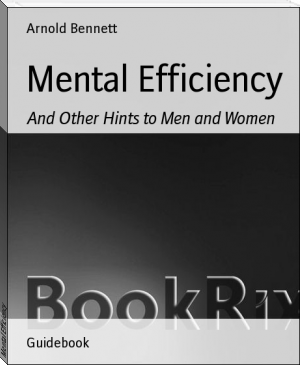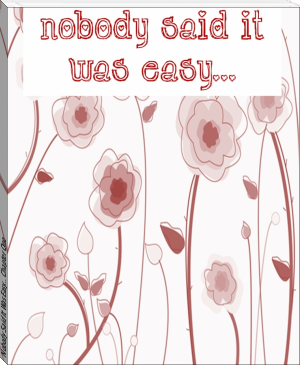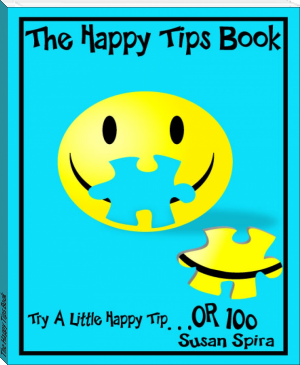Journalism for Women - Arnold Bennett (ebook reader play store .txt) 📗

- Author: Arnold Bennett
Book online «Journalism for Women - Arnold Bennett (ebook reader play store .txt) 📗». Author Arnold Bennett
"Nouns. Difficulty, hardness (and nouns formed from similar adjectives); impracticability, &c. (see _impossibility_); tough-, hard-, uphill- work; hard-, herculean-, Augean-task; task of Sisyphus, Sisyphean labour, tough job, teaser, rasper, dead lift.
"Dilemma, embarrassment; perplexity, &c. (see _uncertainty_); intricacy; entanglement; cross fire; awkwardness, delicacy, ticklish card to play, knot, Gordian knot, _dignus vindice nodus_, net, meshes, maze; coil, &c. (see _convolution_); crooked path.
"Nice-, delicate-, subtle-, knotty point; vexed question, _vexata quaestio_, poser, puzzle, &c. (see riddle); paradox; hard-, nut to crack; bone to pick, crux, _pons asinorum_, where the shoe pinches.
"Nonplus, quandary, strait, pass, pinch, pretty pass, stress, brunt; critical situation, crisis; trial, rub, emergency, exigency, scramble.
"Scrape, hobble, slough, quagmire, hot water, hornet's nest; sea-, peck of troubles: pretty kettle of fish; pickle, stew, _imbroglio_ mess, ado; false position; set fast, stand; dead,-lock,-set; fix, horns of a dilemma, _cul de sac_; hitch; stumbling block, &c. (see _hindrance_)."
The catalogues of allied adjectives and of allied verbs are even longer than the foregoing.
The Introduction to the _Thesaurus_, by the way, though deserving of study, is a dull and cumbrous piece of work and not necessary to the usefulness of the book.
* * * * *
The sin of using trite expressions is equally common among men and women. There are others which chiefly beset women:--
Undue insistence. I have touched upon this in Chapter II. The remedy is to use superlatives only under compulsion, and to eschew italics and such adverbs as "absolutely," "utterly," "positively."
Wordiness. When you have written a paragraph, examine it carefully with the object of eliminating every word which is not necessary to the expression of the meaning. Be sure that you have not said the same thing twice in different words. Keep watch especially against pleonasms. Let this be your motto: Brevity without baldness.
Undue use of metaphor, simile, and figure. This is a sin to which women are wofully prone. They commit it with glee, and I have often found it a most difficult matter to make them realise the absurdities which result from the practice of it. As an illustration of the ludicrous consequences of unbridled indulgence in metaphor and simile, I quote the following extract (not, however, the work of a woman) from a serious and justly respected newspaper.
"I have gasped in wonder to witness one of Her Majesty's judges forsake-- on very insufficient provocation--the gossamer of recreative conversation, to upraise a few monumental, I may say memorable, judgments on the subject of lithography. Now, there are many red rags in the various arts with which to encompass the discomfiture of the Philistine's bull, and the raven will always appropriate the feathers of the peacock and look ridiculous in them; but the rapier enwreathed in the red rag of painting is more readily rushed upon, and plumes of appreciation more wantonly borrowed and grotesquely worn in this walk of art than in any other."
Shun especially mixed metaphors. [Footnote: The most beautiful instance of mixed metaphor I have ever seen occurred in a solicitor's letter, brought to my notice by the clerk to whom it was dictated. It ran thus:--"We go upon the principle that, in order to pull the matter out of the fire, a fourth of a fifth of a loaf is better than no bread, which the terms proposed are."] See the section on figurative language (p. 76) in Nichols' _English Composition_. But do not take Nichols himself as a model; I find him writing thus:--"Avoid an accumulation of little words. The _luggage_ of particles is an _impediment_ to strong speech and a _jar_ in the harmony of style," which is nearly as funny as the funny examples which he quotes.
Chapter VI
The Outside Contributor
In Mr. J.M. Barrie's _When a Man's Single_ [Footnote: This brilliant novel should be seriously studied by every young journalist. It contains more useful advice to the outside contributor than all the manuals of journalism ever written.] the following homily is delivered by a journalist of experience to a naive and innocent beginner:--
"There are only about a dozen papers in London worth writing for, but
I can give you a good account of them. Not only do they pay
handsomely, but the majority are open to contributions from anyone.
Don't you believe what one reads about newspaper rings. Everything
sent in is looked at, and if it is suitable any editor is glad to
have it. Men fail to get a footing on the press because--well, as a
rule because they are stupid."
This is indeed wisdom. I demur to the first sentence alone. There are to-day (whatever the case ten years ago) many more than a dozen papers in London worth writing for; I should put the number nearer a hundred; papers which pay, if not handsomely, at least adequately, seldom lower than fifteen shillings per thousand, and in some noble instances ascending to two guineas--which is princely. A dozen papers worth writing for in the whole of London! Why, it is scarcely uncommon for a single firm to have control of a dozen reputable publications!
The beginner must, for her encouragement and solace under rebuffs, grasp firmly the fact that the immense majority of London editors are not merely willing but in truth anxious to peruse such manuscripts as she cares to submit to their notice, and to accept them if suitable. The supply of really suitable material of average quality does not often exceed the demand, and the supply of suitable material which can be called distinguished is always less than the demand. This is why the editorial eye keeps a sleepless watch for that long-desired new writer, who may be yourself. Also, the beginner should remember with pride that the Press as a whole relies for much of its freshness and attraction upon the outside contributor. If the stream of unsolicited contributions were suddenly to cease flowing into Fleet Street, the monthlies would find themselves in a predicament; all the weeklies (except certain "class" organs), from the esoteric literary sixpenny to the penny popular with a circulation equal to the population of Glasgow, would be compelled to cast aside dignity, and solicit instead of being solicited; even those pompous creatures, the "great dailies," would feel the pinch, despite their regular services and seething staffs. Let it be your glory, therefore, O outside contributors, that the very existence of the Press, as at present organised, depends upon yourselves.
* * * * *
I have already referred to the necessity of visiting regularly a public news-room. As you progress in the power of composition, so must your knowledge of the "make-up" of all the principal papers increase; for the first is useless without the second. You must, in particular, know intimately the complicated topography of all the daily papers--on what days certain features appear; what length of article is affected by each paper; and the subtle variations of tone which, apart from grosser differences, distinguish one organ from another. You must also be well acquainted with the various editorial notices, and take care, when sending in manuscripts, always to obey the instructions there laid down.
The length of an article is a most important matter and frequently decides its fate. Accordingly, the question of lengths must be thoroughly studied. For a simple example, you must know that a _Globe_ "turnover" (the celebrated daily article which occupies the last column on the first page and "turns over" to the second page) must necessarily exceed a thousand words; no article intended for that position, whatever its merit, can have the least chance of acceptance if it falls short of this minimum. Again, the first article in the _Evening Standard_ must exactly fill the column, no more and no less.
Do net despise "class" papers, those which appeal only to a particular section of the community--religious, architectural, literary, artistic, and so forth. These papers sometimes experience a difficulty in getting what articles they desire, and indeed it is notorious that the editors of certain of them are often at their wits' end in the search for new treatments of an exhausted subject. The reasons for such a state of affairs are, of course, first, that outside contributors in their blindness pass over these papers, and secondly, that as the subjects are sharply limited, so is the field for copy.
It would be well to buy for reference Sells' _Dictionary of the World's Press_ (7s. 6d.), a vast volume containing indexes of all papers, with their addresses, and a quantity of useful information concerning them. _The Literary Year Book_ (George Allen, 3s. 6d.), gives a tabular statement (incomplete, but useful so far as it goes) showing the editorial requirements of a number of weekly and monthly organs.
* * * * *
Naturally it is impossible to offer particular advice upon so immense a subject as the selection of topics for articles, but attention is directed to the following three points:--
1. Editors, especially editors of weeklies and monthlies, find it necessary to make their arrangements far in advance of publishing day. Therefore the outside contributor must always look ahead. In March she should have an eye on Midsummer, at Midsummer she should be engrossed by Christmas, and at Christmas that notorious article, "Easter in many Lands," should be approaching completion. It is useless to send in (as so many thoughtless ones do send in) an essay on the New Year just before Christmas, or a seaside dissertation towards the end of July. And this applies not only to the great annual festivals and seasons, but also to all important political, social, and general events whose dates are known beforehand. Take, for an instance, the annual meeting of the British Association. If you send to an editor an anecdotal history of the British Association only a a few days before the meeting itself, you thereby assume that the editor is depending for his topical articles on chance contributions received at the last moment. Which is patently absurd. Without doubt that editor had arranged his British Association articles a couple of months previously, and it is not improbable that he accepted the suggestions of some outside contributor who had been clever enough to look into the future. It is a good plan to compile for reference a calendar of festivals, seasons, and public events, exactly such as the editor himself must use.
2. Women need not confine themselves to women's subjects. Many women writers seem to think that they are debarred by some defect or limitation of sex from treating topics other than those commonly termed feminine. But there is no reason why a woman should not deal as effectively as a man with general matters. (To argue that, because the male journalist does not usually touch women's affairs without





Comments (0)